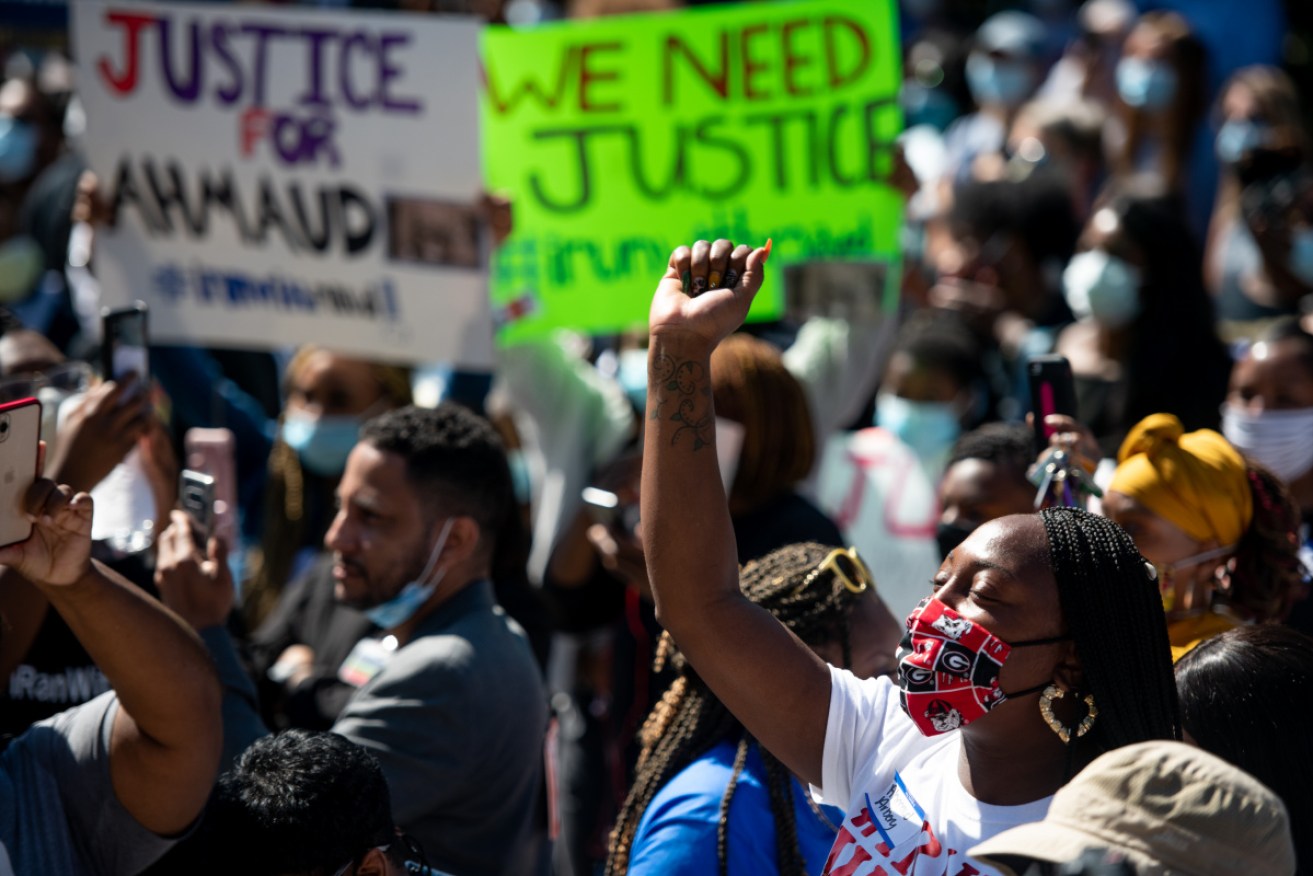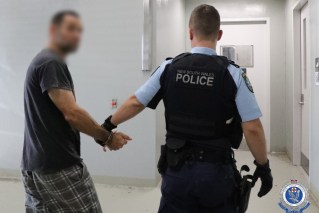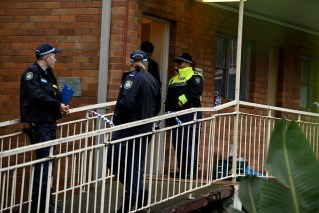Racist white trio get life for murder of innocent black jogger

Demonstrators protest the shooting death of Ahmaud Arbery at the Glynn County Courthouse. Photo: Getty
A Georgia judge has sentenced Travis McMichael, Gregory McMichael and William ‘Roddie’ Bryan to life in prison for what he called the “chilling” 2020 murder of Ahmaud Arbery, a black man who was jogging through their mostly white neighbourhood in the southern US state.
The McMichaels, a father and son, will now spend the rest of their lives in prison, but Judge Timothy Walmsley ruled that Bryan could seek parole after 30 years in prison, the minimum sentence allowed for murder under state law.
Walmsley said at the hearing in Glynn County Court in Brunswick that he gave the McMichaels the harshest sentence open to him in part because of their “callous” words and actions captured on video.
“It was a chilling, truly disturbing scene,” the judge said of the frame in a mobile phone video of the killing where Travis McMichael begins to lift his shotgun at Arbery while the 25-year-old is about six metres away.
He said Arbery was “hunted down and shot and he was killed because individuals here in this courtroom took the law into their own hands”.
Racist stereotyping
Earlier, Arbery’s anguished relatives had addressed the court to argue racial stereotyping led to the killing of the 25-year-old avid jogger.
In November, a jury found Gregory McMichael, 66, his son Travis McMichael, 35, and their neighbour Bryan, 52, guilty of murder, aggravated assault, false imprisonment and criminal intent to commit a felony.
Linda Dunikoski, the lead prosecutor, had argued the two McMichaels should die in prison, and only Bryan should be able to seek parole, pointing to what she called “a demonstrated pattern of vigilantism” by the McMichaels.
Defence lawyers have said they will appeal the convictions.
Bob Rubin, a lawyer for the younger McMichael, said life without parole should be reserved only for “the worst of the worst”.
“His goal was not to commit a crime that day or kill somebody that day,” Rubin said of Travis McMichael. “His goal was to have a family afternoon.”
None of the three convicted men used their right to address the court at the hearing.
Prosecutors said the three men had mistakenly “assumed the worst” about a black man out on a Sunday afternoon jog. The men chased Arbery for about five minutes around the streets.
The case hinged on whether the three men, under a now-repealed Georgia law permitting citizen arrests, had a right to confront Arbery on a hunch he was fleeing a crime.
A mother’s grief
Arbery was running through the residential neighbourhood of Satilla Shores on the afternoon of February 23 when the McMichaels decided to grab their guns, jump in a pickup truck and give chase.
“They chose to target my son because they didn’t want him in their community,” Wanda Cooper-Jones, Arbery’s mother, told the court on Friday.
“When they couldn’t sufficiently scare him or intimidate him, they killed him.”
In his sentencing, the judge quoted the mother’s remarks, saying they struck him as “very true”.
Bryan joined the chase in his own pickup truck, and pulled out his mobile phone to record Travis McMichael firing a shotgun at Arbery at close range.
Arbery had nothing on him besides his running clothes.
The video caused outrage when it emerged months later and it became clear none of the men involved had been arrested after a local prosecutor concluded the killing was justified.
Arbery’s name was added to those invoked in nationwide anti-racism protests in 2020 that erupted after the police killings of George Floyd and Breonna Taylor, both of whom were black.
-AAP






